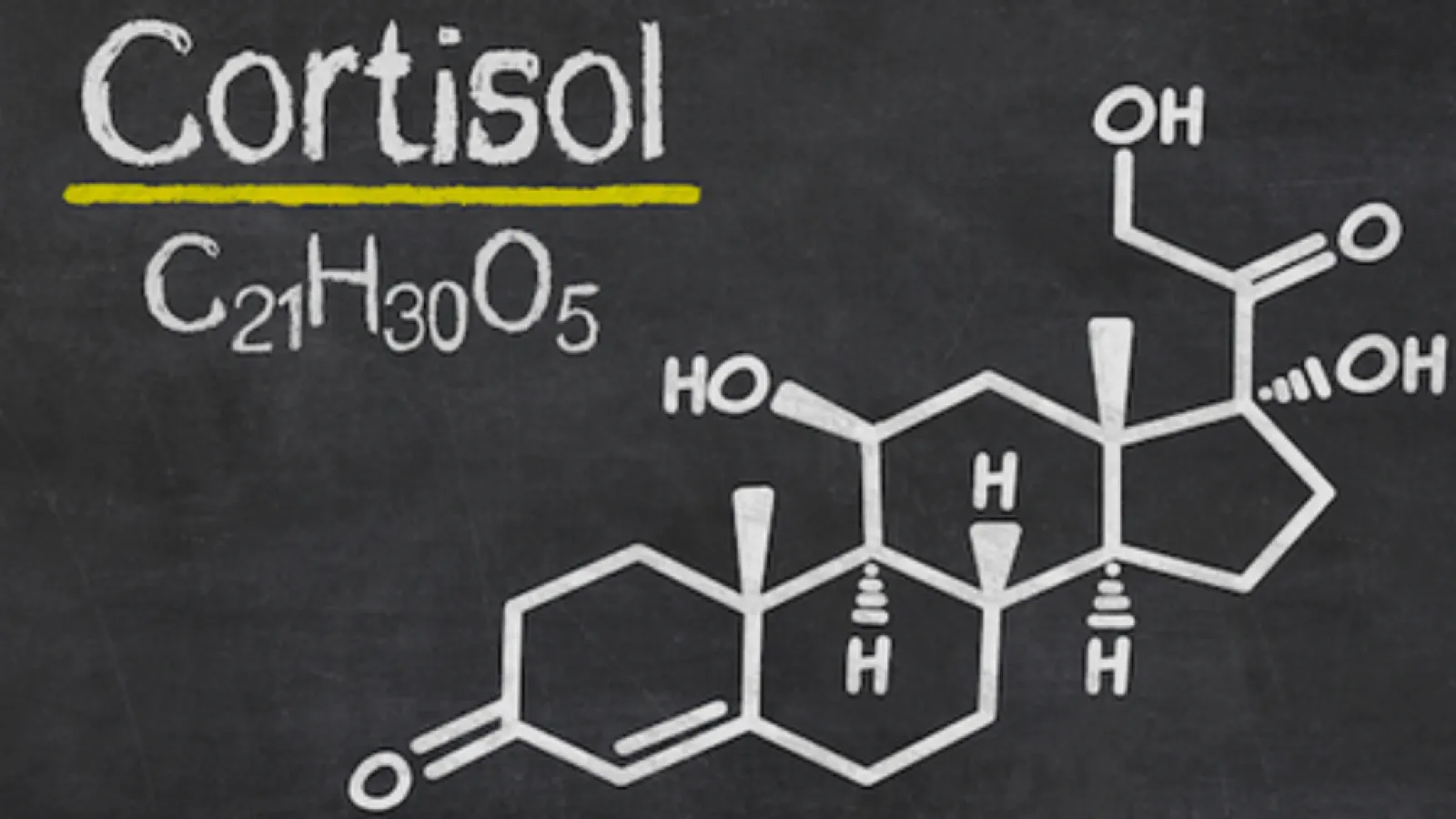Don't know if you've experienced this before, but if you've ever had a shock and felt an adrenaline surge in your body? Well, then you've felt cortisol. It's what is called the "wake you up and get you ready for action" hormones.
Cortisol will hit its lowest point around midnight, so you can fall asleep and then will peak again about 1.5 hours upon waking getting you ready for the day. It's nick-named the "stress hormone" because it's released during the moments of stress! So, if you've ever been in a dangerous situation or have suddenly gotten scared, you will feel it.

But... Cortisol becomes harmful if we have high levels of cortisol for too long. If this occurs, it can make us feel stressed, even if we have no reason to be. If these high levels of stress continue, it can make us depressed, anxious, or angry for no reason. They may cause you to eat more and cause cravings of the wrong foods. Especially sugary, junk food that will make you gain fat, lose muscle, and cause your hormones to be off balance.
While Cortisol raises our energy levels in the moment, it lowers them in the long term. High cortisol makes it hard to get good sleep, which is important to build muscle and lose fat. If we don't get enough sleep because of high cortisol and we become sleep deprived, our bodies will produce more cortisol. Most of our muscle repair and fat-burning is done in the first few hours of sleep. If we have high cortisol levels at night then not only do we get poor sleep, but we lose the night time fat-burn and cellular repair.
Like I mentioned earlier, Cortisol is supposed to be at its lowest around midnight. This is because this is one of the main times we get spikes in both Growth Hormone (for muscle building and cellular repair) as well as Insulin-like Growth Factor (one of the major fat-burning hormones). But, if your Cortisol levels are raised at night, Cortisol suppresses growth hormones, testosterone and IGF. Cortisol sends messages to not use glycogen for energy (your stored chains of sugar), to not use body fat for energy and instead, use your muscle as a source of energy, breaking down the protein into amino acids and having these converted to glucose for energy.
So if Cortisol is raised at night, say good-bye to not only a good night's sleep (lowered serotonin and GABA), but night time fat-burning and muscle gain as well (suppressed growth hormone and IGF). Cortisol also lowers serotonin and GABA levels, also known as the "happy and "calming" neurotransmitters. These can make us feel anxious, depressed or angry. Ultimately, this can lead you to a pretty awful downward spiral...
There have been studies done on kids who intake high sugar diets vs. those on whole foods. The kids on high sugar diets were more aggressive and angry in general as compared to the calmer demeanors of kids eating the whole foods.

So, outside of stressful situations, what raises Cortisol and how do we lower it? Processed sugars, trans fat, high levels of Omega 6 fatty acids, environmental toxins, injuries, infection or partially digested proteins. It's the processed sugars like high fructose corn syrup from sodas and junk foods that raise Cortisol levels. As a society, we've seen obesity rates quadruple since the introduction of this sugar.
So, if you continue to have a lack of sleep, this will further release Cortisol - it will keep you awake the next day, and will trigger more cravings of processed sugar for fast energy, thus releasing more cortisol. While this is occurring, it's working alongside insulin and this will increase fat storage, depress energy levels, muscle gain and affect mood.
For now, the best and fastest way to lower cortisol, improve mood and increase overall health is coming off processed sugars of any kind. You'll see how much of a difference and impact it can make in your daily life!
About The Author:

